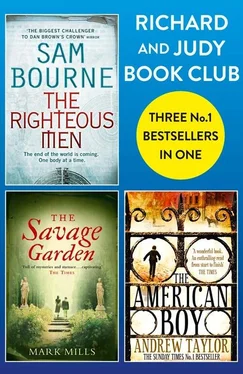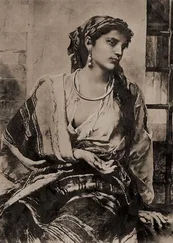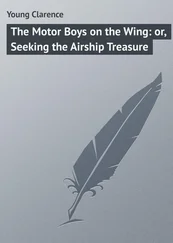So it seemed there was only one road to mercy, and that was by declaring me insane. At the time I had little objection. The magistrates decided that I was the victim of periodic bouts of insanity, during one of which I had assaulted the officer on his black horse. It was a form of lunacy, they agreed, that should yield to treatment. This made it possible for me to be released into the care of my aunt.
She arranged for me to board with Dr Haines, whom she had consulted during my trial. Haines was a humane man who disliked chaining up his patients like dogs and who lived with his own family not far away from them. “I hold with Terence,” the doctor said to me. “ Homo sum; humani nil a me alienum puto. To be sure, some of the poor fellows have unusual habits which are not always convenient in society, but they are made of the same clay as you or I.”
Most of his patients were madmen and half-wits, some violent, some foolish, all sad; demented, syphilitic, idiotic, prey to strange and fearful delusions, or sweeping from one extreme of their spirits to the other in the folie circulaire. But there were a few like myself, who lived apart from the others and were invited to take our meals with the doctor and his wife in the private part of the house.
“Give him time and quiet, moderate exercise and a good, wholesome diet,” Dr Haines told my aunt in my presence, “and your nephew will mend.”
At first I doubted him. My dreams were filled with the groans of the dying, with the fear of death, with my own unworthiness. Why should I live? What had I done to deserve it when so many better men were dead? At first, night after night, I woke drenched in sweat, with my pulses racing, and sensed the presence of my cries hanging in the air though their sound had gone. Others in that house cried in the night, so why should not I?
The doctor, however, said it would not do and gave me a dose of laudanum each evening, which calmed my disquiet or at least blunted its edge. Also he made me talk to him, of what I had done and seen. “Unwholesome memories,” he once told me, “should be treated like unwholesome food. It is better to purge them than to leave them within.” I was reluctant to believe him. I clung to my misery because it was all I had. I told him I could not remember; I feigned rage; I wept.
After a week or two, he cunningly worked on my feelings, suggesting that if I were to teach his son and daughters some Latin and a little Greek for half an hour each morning, he would be able to remit a modest proportion of the fees my aunt paid him for my upkeep. For the first week of this instruction, he sat in the parlour reading a book as I made the children con their grammars and chant their declensions. Then he took to leaving me alone with them, at first for a few minutes only, and then for longer.
“You have a gift for instructing the young,” the doctor said to me one evening.
“I show them no mercy. I make them work hard.”
“You make them wish to please you.”
It was not long after that he declared that he had done all he could for me. My aunt took me to her lodgings in a narrow little street running up to the Strand. Here I perched like an untidy cuckoo, mouth ever open, in her snug nest. I filled her parlour during the day, and slept there at night on a bed they made up on the sofa. During that summer, the reek from the river was well-nigh overwhelming.
I soon realised that my aunt was not well, that I had occasioned a severe increase in her expenditure since my foolish assault with the Waterloo Medal, and that my presence, though she strove to hide it, could not but be a burden to her. I also heard the groans she smothered in the dark hours of the morning, and I saw illness ravage her body like an invading army.
One day, as we drank tea after dinner, my aunt gave me back the Waterloo Medal.
It felt cold and heavy in the palm of my hand. I touched the ribbon with its broad, blood-red stripe between dark blue borders. I tilted my hand and let the medal slide on to the table by the tea caddy. I pushed it towards her.
“Where did it come from?”
“The magistrate gave it to me for you,” she said. “The one who was kind, who had served in the Peninsula. He said it was yours, that you had earned it.”
“I threw it away.”
She shook her head. “You threw it at Captain Stanhope.”
“Does not that amount to the same thing?”
“No.” She added, almost pleading, “You could be proud of it, Tom. You fought with honour for your King and your country.”
“There was no damned honour in it,” I muttered. But I took the medal to please her, and slipped it in my pocket. Then I said – and the one thing led to the other – “I must find employment. I cannot be a burden to you any longer.”
At that time jobs of any kind were not easy to find, particularly if one was a discharged lunatic who had left his last teaching post without a reference, who lacked qualifications or influence. But my aunt Reynolds had once kept house for Mr Bransby’s family, and he had a kindness for her. Upon threads of this nature, those chance connections of memory, habit and affection that bind us with fragile and invisible bonds, the happiness of many depends, even their lives.
All this explains why I was ready to take up my position as an under-usher at the Manor House School in the village of Stoke Newington on Monday the 13th of September. On the evening before I left my aunt’s house for the last time, I walked east into the City and on to London Bridge. I stopped there for a while and watched the grey, sluggish water moving between the piers and the craft plying up and down the river. Then, at last, I felt in my trouser pocket and took out the medal. I threw it into the water. I was on the upstream side of the bridge and the little disc twisted and twinkled as it fell, catching the evening sunshine. It slipped neatly into the river, like one going home. It might never have existed.
“Why did I not do that before?” I said aloud, and two shopgirls, passing arm in arm, laughed at me.
I laughed back, and they giggled, picked up their skirts and hastened away. They were pretty girls, too, and I felt desire stir within me. One of them was tall and dark, and she reminded me a little of Fanny, my first love. The girls skittered like leaves in the wind and I watched how their bodies swayed beneath thin dresses. As my aunt grows worse, I thought, I grow better, as though I feed upon her distress.
Once again, I walked to save money. My box had gone ahead by carrier. I followed the old Roman road to Cambridge, Ermine-street, stretching north from Shoreditch, the bricks and mortar of the city creeping blindly after it like ants following a line of honey.
About a mile south of Stoke Newington, the vehicles on the road came to a noisy standstill. Walking steadily, I passed the uneasy, twitching snake of curricles and gigs, chaises and carts, stagecoaches and wagons, until I drew level with the cause of the obstruction. A shabby little one-horse carriage travelling south had collided with a brewer’s dray returning from London. One of the chaise’s shafts had snapped, and the unfortunate hack which had drawn it was squirming on the ground, still entangled in her harness. The driver was waving his blood-soaked wig at the draymen and bellowing, while around them gathered a steadily expanding crowd of angry travellers and curious bystanders.
Some forty yards away, standing in the queue of vehicles travelling towards London, was a carriage drawn by a pair of matching bays. When I saw it, I felt a pang, curiously like hunger. I had seen the equipage before – outside the Manor House School. The same coachman was on the box, staring at the scene of the accident with a bored expression on his face. The glass was down and a man’s hand rested on the sill.
Читать дальше












